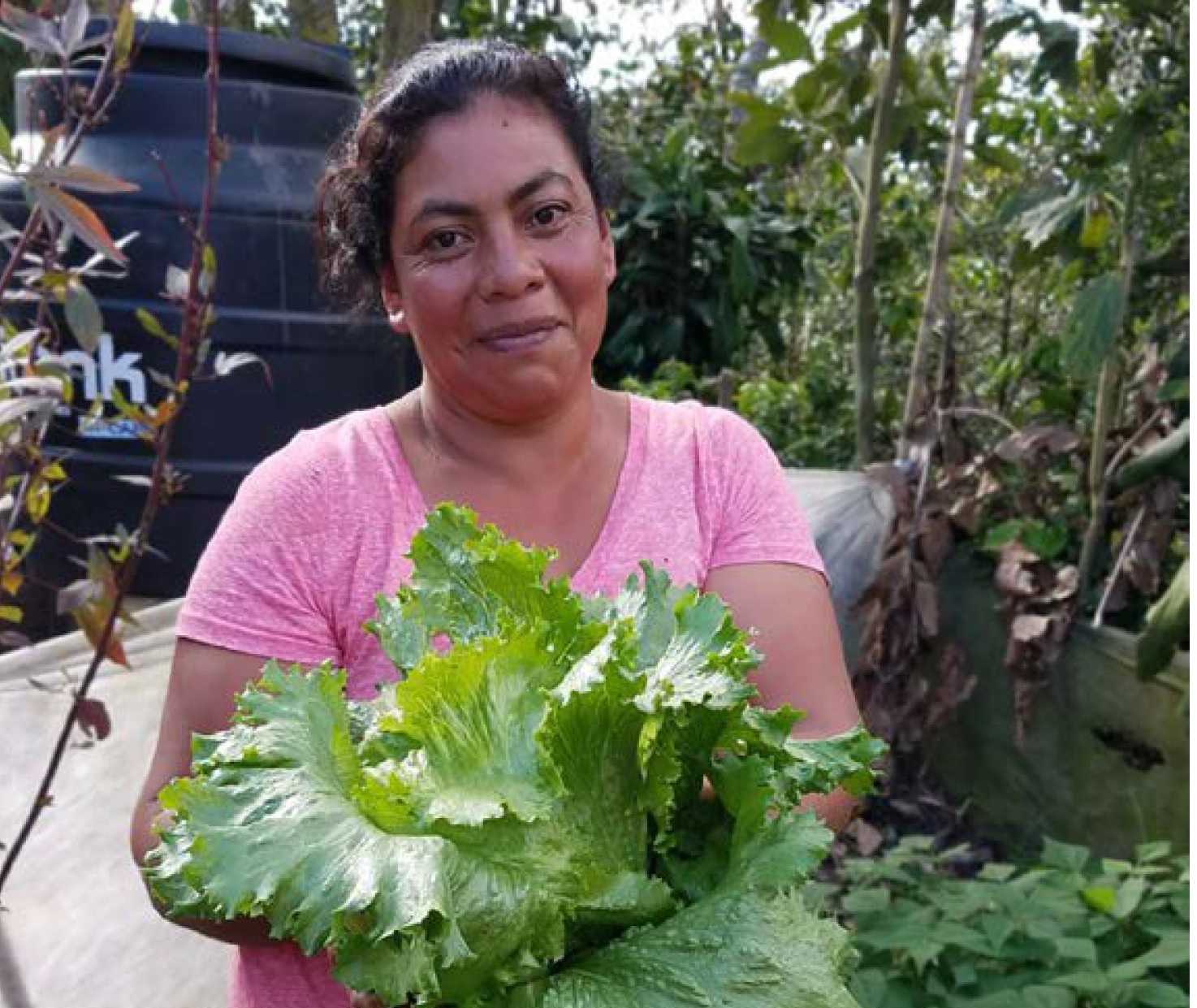BURLINGTON, VT – Food 4 Farmers is proud to share their 2018 Annual Report highlighting the innovative efforts of organizations representing more than 3,000 coffee-farming families working to end seasonal hunger in Latin America. Over the past year, coffee prices dropped to unsustainable levels well below the costs of production, while food prices in most farming communities rose sharply.
For example, annual food costs for families at the Maya Ixil Cooperative in Guatemala have increased by 67 percent since 2010, while the coffee price has decreased by 29 percent over the same period. Food 4 Farmers partner SOPPEXCCA in Nicaragua found that families there experienced an average of three and a half months of food insecurity.
“It was a challenging year for coffee-farming families; and it continues today. That’s why Food 4 Farmers’ work to help families reduce their dependence on coffee and diversify income is so important,” said Magda Van Dusen, Food 4 Farmers Board Chair. “We’re proud that even in spite of low coffee prices, the families we work with have been able to implement long-term strategies to address the root causes of hunger and poverty.”
Food 4 Farmers takes a long-term approach to developing solutions based on trust and respect, helping families diagnose their challenges and identify opportunities, develop strategies and implement them. The organization currently partners with coffee-growing organizations and families in Mexico, Guatemala, Nicaragua and Colombia to:
- Strengthen local food systems
- Diversify income & build economic independence
- Cultivate leadership among women and young people
- Encourage sustainable farming practices that promote biodiversity and ecosystem resilience.
Report highlights include:
- Farmers at CESMACH in Chiapas, Mexico, and Maya Ixil in Guatemala have turned to beekeeping to supplement income and pollinate crops. Together they produced over 48,000 pounds of honey, working with an estimated 45 million bees.
A group of 28 women at SOPPEXCCA in Nicaragua launched a weekly organic farmers’ market in Jinotega. The market typically has sold out in a few hours. Many of the women also relied on their home gardens to weather shortages caused by political turmoil in the country.
- The farming families of Nuevo Futuro in Popayán, Colombia, organized an annual food sovereignty festival highlighting ancestral recipes and connected families with local farmers’ markets to sell their organic and heirloom produce. They were also trained on rainwater harvesting and irrigation techniques to weather the dry season.
- Beekeeping has been shown to increase the quality and productivity of coffee by as much as 30 percent. Families benefit from consuming honey, a healthy, natural sweetener, and use bees to pollinate food crops.
- Women and girls make up 80 percent of all program participants. Food 4 Farmers is a women-led organization with a focus on nurturing female leaders to take on important roles in their communities. Three of Food 4 Farmers’ five partner organizations are managed by women, as well as all food security coordinators and half of all promoters.
Click here to read more and download the full report.
About Food 4 Farmers
Food 4 Farmers partners with Latin American coffee-farming communities to cultivate a food-secure future. The team coaches and connects coffee cooperatives, small-scale farmers, and their families with the expertise they need to strengthen local food systems, build economic independence, cultivate leadership among families, women and young people, and support environmentally-friendly farming practices.
For more information visit www.food4farmers.org.


















